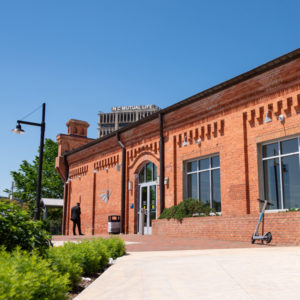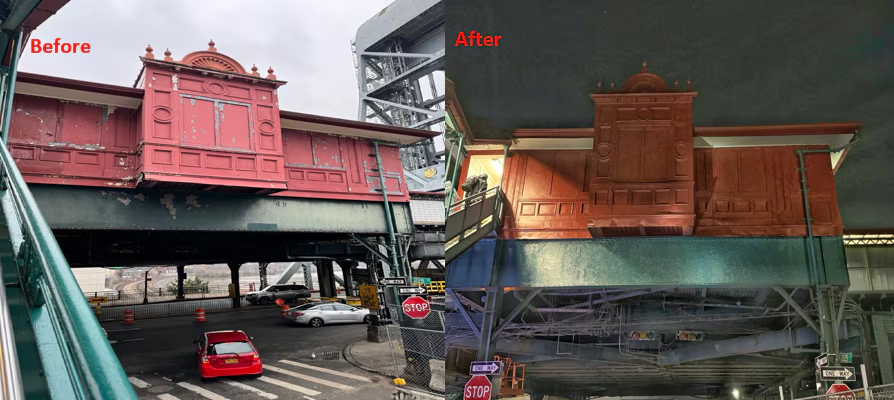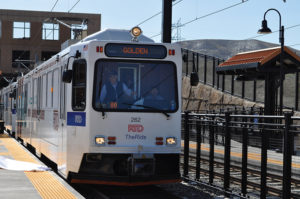Perris Valley Line criticism lingers after draft report
Written by jroodFrustrated by the clanging and banging of freight trains through their neighborhood near UC Riverside, Calif., residents have demanded better sound protection and more specifics on safety improvements before they support a planned expansion of Metrolink service, The Press-Enterprise reports. But retrofitting more than 100 homes, adding underpasses and developing a community safety plan could cost millions of dollars and potentially delay the Perris Valley Line.
That leaves planners with
the Riverside County Transportation Commission to weigh whether the
improvements would make adding the passenger rail service too pricey, and
balance the concerns of Riverside residents with the outpouring of support
expanded train service has in other parts of the county.
The $230-million project,
discussed for more than a decade, has drawn the ire of residents, notably
around the university. They have been vigilant in opposing the project for at
least three years, and were recently angered by plans for the project that they
said fall short of solving their problems.
Neighbors said trains
already harm their quality of life by waking them up in the night and
screeching past homes, schools and businesses. Those less than a block away
said it would be intolerable to add more trains.
Plans call for commuter
trains to start running by 2012, from downtown Riverside east toward Hunter
Business Park and UCR, and then south along tracks parallel to Interstate 215
and into Perris. Freight trains now use the route, but the six morning and six
evening commuter trains would be the first passenger lines to travel the track
in years.
Public comment on the
project’s environmental report closed last week. A final environmental report,
expected later this year, will include responses to all the written comments
submitted regarding the draft. Later this year, members of the transportation
commission — one from each of the 27 cities in the county and the five county
commissioners — will decide if the project proceeds.
The commission, which
owns the tracks but by federal law must allow BNSF access to them, is trying to
expand Metrolink service to an area where residents want it, executive director
Anne Mayer said. Not everyone is going to agree how best to do it, she said,
and even neighbors are not unanimous in what they want to see built.
"Some of them said
‘build a sound wall,’" Mayer said. "And some of them said ‘I don’t
want to look at a sound wall from my back yard.’"
Riverside school
officials are concerned that adding trains to the Perris Valley Line will
endanger children at nearby Hyatt Elementary School.
Freight trains rumble
through the neighborhood, but many residents say the major issue with adding 12
commuter trains is a lack of cooperation by transportation officials to address
their worries.
In the recent
environmental report, officials outlined plans to fit seven properties with new
windows to minimize noise and erect sound walls through the neighborhood. Residents
have said for years the fixes officials have proposed don’t go far enough. Many
have called for retrofitting tens and possibly hundreds of homes with new
windows.
Residents also said
transportation officials have ignored worries about public safety by not
proposing overpasses and underpasses in the neighborhood. If a derailment
occurred along the line — residents recall a 1990 lumber spill — some
residential streets would be blocked and residents would be trapped until
tracks were cleared.
Residents are not the
only ones critical of the plan. Officials with Riverside Unified School
District have informed transportation officials in person and in a 14-page
letter that the project’s environmental report does not quell concerns over
student health and safety at Hyatt and Highland elementary schools. The tracks,
which run on a ridge above a playground at Hyatt, pose serious risk to
students, especially in the event of a derailment. The report notes that a
derailment is likely once every 124 years, but school officials believe it is
much more likely, said Kirk Lewis, assistant superintendent for operations.
Simply looking at the
history of the line would show that, he said.
This is not the first
time the project has faced such criticism for not addressing all of the
concerns. Initially, the transportation commission submitted a scaled-down
environmental report on the project, commissioning the larger study only after
public outcry last year.
Residents also fear
freight use of the tracks along I-215 around March Air Reserve Base is what is
spurring the improvements.
"I still feel, given
everything I’ve read and heard from (the Riverside County Transportation
Commission), this project is really driven by wanting to help the development
down the I-215 and possibly further," said Kevin Dawson, who has organized
some of the opposition.
Planners of the Perris
Valley Line said they will take the concerns into consideration, which is the
purpose of releasing the environmental draft report and holding public
meetings. But expecting officials to solve everyone’s problems is impossible,
Mayer said.
Some of the noise
problems might be fixed by improvements to the railroad tracks, she said. The
complaints residents now have are with freight trains that rumble through the
neighborhood. Replacing certain sections of the tracks will make all trains
quieter, she said.
Mayer said as the project
moves forward, there is the chance that many of the problems will be addressed.
But she said the cost of the project needs to be considered. Officials can work
to mitigate the residents’ concerns, she said, but will not noise-proof every
house within a mile of the tracks.
And with construction of
the line planned for 2012, and federal money tied to the project, retrofitting
hundreds of homes and other construction could delay the project, after years
of planning. Officials said they could not estimate the cost of additional
improvements.
"It is going to be
extremely expensive," said county Supervisor Bob Buster.





